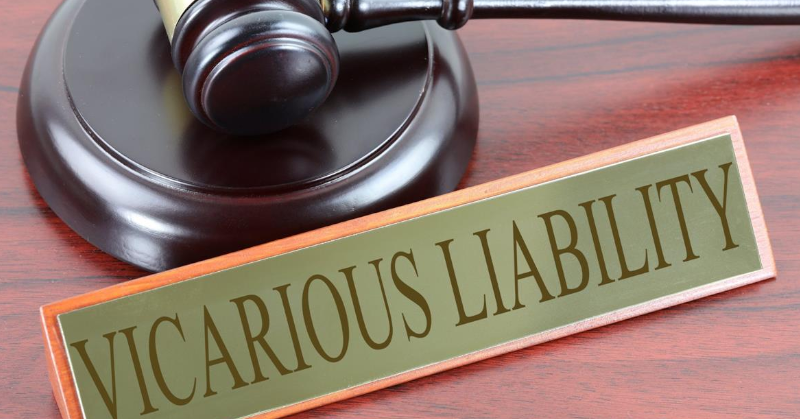Maternity and Parental Rights
Having a child is an exciting time but it can also raise various issues in relation to your employment, including:
- Making sure you are safe at work during pregnancy
- Arranging time off for appointments
- Leave
- Pay and benefits
- Your role and working hours when you return after a period of leave
How we can help
There is a range of family-friendly rights and entitlements available to employees, but the rules as to how these apply can be complex. We can guide you through the processes and requirements relating to shared parental and adoption leave, plus requests for flexible working.
We also have experience in dealing with pregnancy and maternity discrimination claims, whether due to detrimental treatment when a pregnancy is announced or in relation to the challenge of balancing childcare arrangements with working life and career development upon your return from maternity leave.
Any dismissal which can be shown to be for reasons connected with pregnancy or maternity leave will be automatically unfair. We can support you in pursuing the compensation you are entitled to if your employer does not allow you to exercise your rights and entitlements or to do so fully.
Telephone: 01603 214 220
Maternity Leave and Maternity Pay
Your Maternity Rights Explained
When you take time off to have a baby you may be eligible for:
- Statutory Maternity Leave
- Statutory Maternity Pay
- Paid time off for antenatal care
- Further maternity benefits from the government such as:
- Universal Credit
- Child Benefit
- Child Tax Credit
- Working Tax Credit which can continue for 39 weeks after you go on maternity leave)
- Income Support (you may get this while you are not working)
- Free prescriptions and NHS dental treatment while you are pregnant and for 12 months after your baby’s due date
- You could get a £500 Sure Start Maternity Grant (usually if it is your first child)
- Maternity Allowance (if you are not eligible for Statutory Maternity Pay)
Maternity Leave
Statutory Maternity Leave is 52 weeks which is made up of:
Ordinary Maternity Leave – first 26 weeks
Additional Maternity Leave – last 26 weeks
You do not have to take 52 weeks, but you must take two weeks’ leave after your baby is born. This is four weeks if you work in a factory.
The earliest you may start your leave is 11 weeks before the expected week of childbirth. Leave may start on the day after the birth if the baby is early. Leave may start automatically if you are off work for a pregnancy-related illness in the four weeks before the week that your baby is due.
You must give your employer at least eight weeks’ notice if you want to change your return to work date.
Eligibility for Statutory Maternity Leave
You must:
- Be an employee, not a worker
- Give your employer the correct notice
It does not matter how long you have been with your employer, how many hours you work or how much you get paid.
How to claim Statutory Maternity Leave
- At least 15 weeks before your due date, tell your employer when the baby is due and when you want your maternity leave to start
- Your employer must write to you within 28 days confirming your end date.
Statutory Maternity Pay
This is paid for up to 39 weeks and it is calculated as:
- 90% of your average weekly earnings (before tax) for the first six weeks
- £156.66 or 90% of your average weekly earnings (whichever is lower) for the next 33 weeks. As of April 2023 ( effective date is 06/04/23 ) this figure will increase to £172.48 per week.
If you take Shared Parental Leave you will get Statutory Shared Parental Pay which is £156.66 a week or 90% of your average weekly earnings, whichever is lower.
Shared Parental Leave
You and your partner can share up to 50 weeks of leave and up to 37 weeks of pay between you. This is calculated by taking the 52 weeks maternity leave and 39 weeks of maternity pay the birth parent is entitled to, minus the two weeks of leave and pay that must be taken after the birth.
You need to share the pay and leave in the first year after your child is born or placed with your family.
You and your partner may take leave off at the same time to spend family time together both before and after the birth of your baby.
You can book up to three separate blocks of Shared Parental Leave giving at least 8 weeks’ notice, rather than taking the leave all in one go.
Optional days – agreed between employee and employer:
You and your partner can each work up to 20 days while you are taking Shared Parental Leave – these are called Shared Parental Leave in Touch (SPLIT) days.
The SPLIT days are in addition to the 10 Keeping in Touch (KIT) days available to those on maternity leave.
Eligibility for Statutory Maternity Pay
You must:
- Earn on average at least £123 a week
- Give the correct notice
- Give proof you are pregnant
- Have worked for your employer continuously for at least 26 weeks continuing into the qualifying week which is the 15th week before the expected week of childbirth
How to claim Statutory Maternity Pay
- Give your employer at least 28 days’ notice
- Tell your employer you want to stop work to have a baby
- Tell your employer you want your Statutory Maternity Pay to start
- Your employer should confirm within 28 days how much Statutory Maternity Pay you will get and when it will start and stop
- If your employer decides you are not eligible, they must give you Form SMP1 within seven days of making their decision explaining why
- You must give your employer proof of the pregnancy
- Within 21 days of your Statutory Maternity Pay start date you must give your employer either:
- A letter from your doctor or midwife
- Your MATB1 certificate (doctor and midwives will give you this no more than 20 weeks before the due date)
If you need advice relating to your rights as a parent or you are being treated differently due to pregnancy or maternity, please do not hesitate to contact our team of employment lawyers for advice and assistance.

How we
can help you
Whether you’re facing an employment tribunal, need help negotiating your contract or feel you have been subjected to discrimination in the workplace, our proactive and approachable employment law specialists take pride in providing practical, confidential advice to employees in a wide range of industries.
To find out more about our expertise, please call:
Our insights
Delivering thought-leading expertise and understanding from our expert solicitors and staff.



